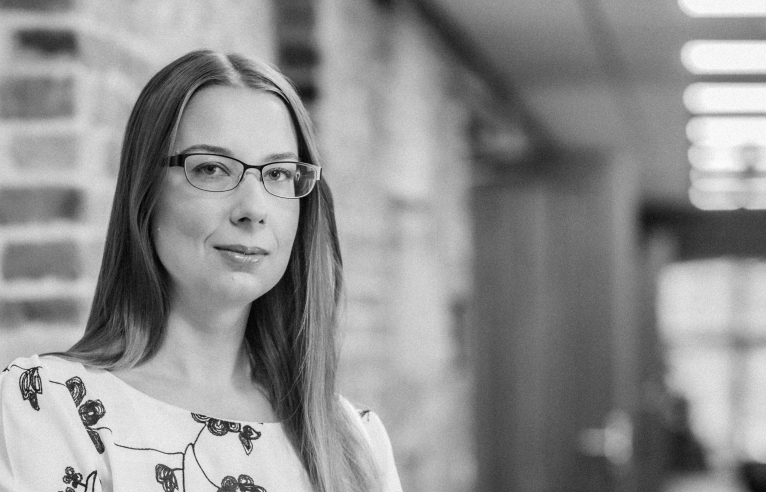Kids and money
4/1/2025
Kristina Udras, Consultant

HR managers and consultants usually talk about salaries, but we decided to ask those who don't yet have a CV or a LinkedIn account - children. We found out what children aged 3 to 12 in Estonia and Latvia think about wages, fair pay and what else they could be paid for besides work. The result is funny, profound and shockingly honest all at the same time.
What is a salary? And where does it come from?
Most of the children logically linked salaries to work - at least some kind of work. "Salary comes from the job," said one. "It comes from the bank," thought another. One 3-year-old girl explained it simply: "The salary is on the card when you go to the shop and beep it."
But 5-year-old Oskars analysed it in depth: "Salary is what people get for their work. But where it comes from, I don't know: it's phone money, not gold coins - I could explain making gold coins, but not internet money."
Some thought that the salary comes from the "glass house", others were sure that "the president gives it", while one kid was more practical: "The salary comes from the bank account where the main money is collected."
How much would you pay yourself?
Here the range went impressively wide - from 2.5 euros a day to infinity :D Many children, however, offered quite realistic amounts in the range of a few thousand euros. Tanel, aged 6, thought it would be fair to pay himself 10,000 billion just because it was such a big sum. 5-year-old Viesturs started at €40, but found a daily fee: "Oh no, a day would cost 10. I just thought so."
Helen, 7, estimated the size of the salary through dreams: "Enough to buy dresses and make-up." Another 9-year-old girl would pay herself €1,000 - because that's what a cat who is suitable for allergy sufferers costs. 10-year-old David said sincerely: "€1 million so I can buy my family a home and my mum doesn't have to work anymore."
Ieva, 8, thought that, as she just goes to school and doesn't do much else, €2.5 a day would be enough. 10-year-old Janis, on the other hand, knew that €4,000 would be just enough: "Then I will have everything I need. I don't want too much. 4,000 is the ideal salary."
What is a fair wage?
That's where things got really serious. Most of the children believed that fairness meant being paid according to the effort and difficulty of the work. "If you're a good worker, you should get more," said a 12-year-old girl. 8-year-old Emili gave an example: "If one person only writes a few pages and another writes a whole book, the pay should be different!"
11-year-old Mart analysed the situation in a grown-up way: "Doctors should get more than family nurses. And if somebody is on holiday and somebody else is doing their job, then that somebody else should get that salary." Ivars, 12, highlighted efficiency: "If two people do the same job but one does it better, then he should get more." But there were also fans of equality. 8-year-old Markus believed that everyone should get equal pay: "Then the world would be a fairer place."
What else could you get paid for?
Now the fantasy was on full speed! The kids thought that one could get paid for:
- Going to school (4 respondents in total!).
- Good deeds - €5 to €7 for a "very good deed"
- Selling insects
- Being beautiful
- Social media posts, especially in support of Ukraine
- Doing the work of others
- Going to the spa (3-year-old! Maria)
- Playing the harmonica in the street (an observation from life - poor people do it to get money)
- Fame in itself - "If you're famous, you get money. That's also a job," said Grete, 6.
10-year-old Edgars even proposed an employer profit model: "A company sells something and pays its employees less than it earns, otherwise it would go bankrupt." Congratulations, we have a young business consultant growing up.
What to make of all this?
If kids could run the labour market, we would have:
- more equality and fairness,
- payday every day (some would even get paid as much as €2002 a day),
- and probably more cats, dresses, spa holidays and insect-based business models.
On a more serious note, children's reflections on salaries and the value of work reflect the values of our society in a surprisingly more genuine and honest way than adults’ ones sometimes do. Children realise that salary is not just something you get, even if they don't know where the money comes from - whether it's from the glass house or the president's desk drawer. In their own way, they also understand that justice is not always about equality, but about getting a fair reward for effort and contribution.
If you want to understand the world of money a little differently - or just to have a bit of a laugh – it is always worth to look at the world through children's eyes!
